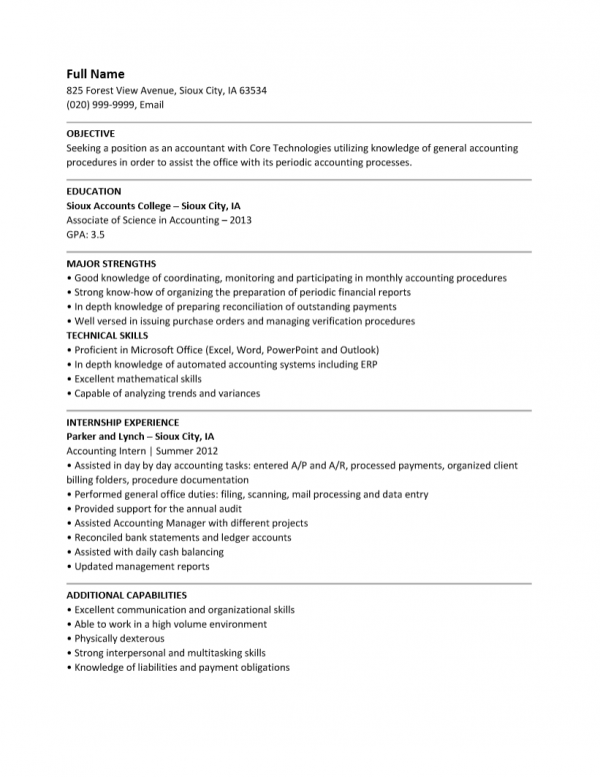
|
Entry Level Accounting Resume Template |
The Entry Level Accounting Resume Template gives job seekers direction in creating a resume when it is time to embark upon a career in accounting. Accountants are responsible for keeping track of a company’s budget, profits, losses, expenditures, etc. In addition, they are often required to spot any problems that may interfere with that company’s ability to function or make a profit. Thus their responsibilities will include balancing books in everything from employee pay to supply cost. Accountants may also be responsible for preparing a company’s taxes. Some companies will require additional services such as bill collecting. This may not be the case for every entry level accountant position as it is common to break in most entry level employees slowly. Thus, it would be wise to highlight specific skills for specific entry level positions. Needless to say this can be time consuming and taxing when responding to several such opportunities at once.
A resume should be aimed at the job one is going for, it should also arrive as quickly as possible and be of high quality. This creates a time management problem which can be solved nicely by employing a template form. The template form will contain all the sections necessary to convey information to a potential employer while maintaining a professionally attractive format. Once the candidate’s content has been entered, it may easily be revised for a potential employer’s preferences. This enables a job hunter to send in a winning resume early in their targets hunt for a candidate.
How to Write
Step 1. Place your name at the top of the page. Enlarge the font or add a similar effect that will make your name stand out.
Step 2. Your address should follow your name on the next few lines.
Step 3. State your professional goals in the “Objective” section. This should be two to three statements.
Step 4. The “Education” section will be where you name the degree you attained. Make sure to where you earned it, the year, the official title of the degree, and anything which may be impressive or relevant such as coursework or GPA.
Step 5. The “Major Strengths” section is where you will list relevant subjects in your knowledge base.
Step 6. List tools you are proficient in (i.e. software) under the “Technical Skills” heading.
Step 7. The “Internship Experience” section is where you will list information about the internships you have held. For each entry, report the name of the company, its location, the time period you held the internship, and the official title you held there. Follow this with the list of duties you were responsible for.
Step 8. List any abilities you possess, not previously mentioned, in the “Additional Capabilities” section.


